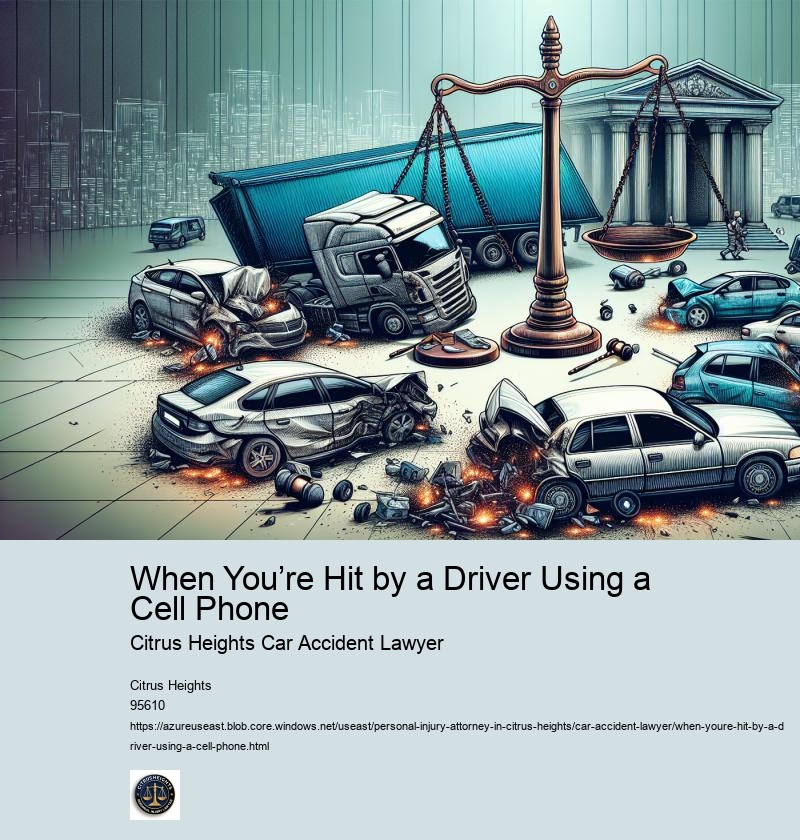When You’re Hit by a Driver Using a Cell Phone
safety

For anyone dealing with the aftermath of a crash, 24/7 legal help after a car accident is available. If you’ve been hurt in a car accident, speaking with a personal injury attorney in Citrus Heights can help you understand your legal options and pursue fair compensation.. Each attorney we match you with works on a no win, no fee basis. data We also provide 24/7 legal help after a car accident, because waiting too long to act can hurt your case. All lawyers in our network are licensed, experienced in California injury law, and familiar with the local court system. Here's how our lawyer matching service works: You provide basic details about your accident-when, where, how it happened-and we match you with a Citrus Heights car accident lawyer who is experienced in handling similar cases.
Understanding what to do after a car accident in Citrus Heights is one of the most common concerns people have. These claims can help cover funeral expenses, lost income, and emotional hardship. Having a structured plan helps you stay informed and reduces stress. Rather than spending time comparing law firm ads, our service connects you to a pre-vetted lawyer who's available and experienced in your case type. lawsuit
This approach gives you access to legal help right away, without worrying about legal fees.
When You’re Hit by a Driver Using a Cell Phone - road
- catastrophic injury
- Interstate 5 in California
- Sacramento County
- advertising
The match is free, and you're under no obligation to hire.
When You’re Hit by a Driver Using a Cell Phone - Greenback Party
- vehicle insurance
- Monterey County
- road
- regulation
- rear-end collision
- negligence
- law
Monterey County